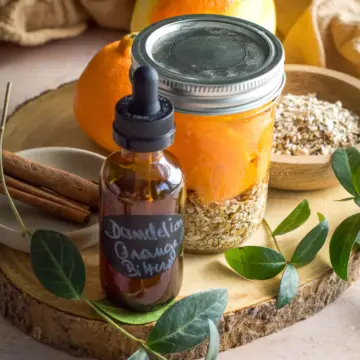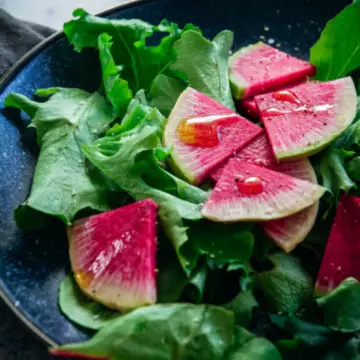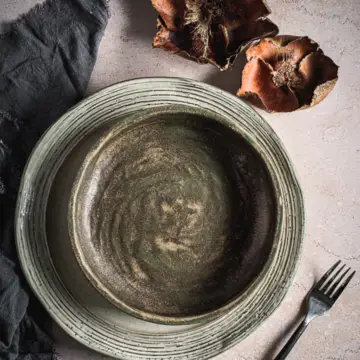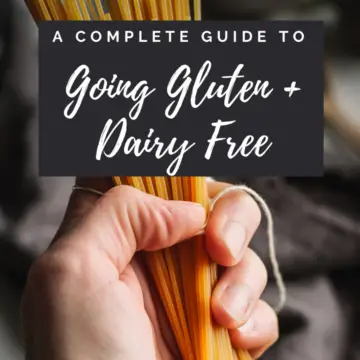In recent years we've discovered that bacteria play an essential role in our digestive system and mental health. In this post, I explore the role of bacteria in our lives.

Chances are if you have stumbled upon this article or are a regular reader, you have heard the word "microbiome" or at least the words "gut bacteria".
What is the Microbiome?
The microbiome is referred to as the community of bacteria and their genes that live in a symbiotic relationship with us and reside in and on our bodies. The majority of bacteria take up residence in the intestinal tract, particularly in the large intestine.
Hippocrates said: "All disease begins in the gut" and science has confirmed that 90% of diseases can be traced back to some sort of gut dysfunction.. Most Americans have an out-of-balance gut-bacteria ratio with bad bacteria largely dominating their intestines. Several factors contribute to an out-of-balance microbiome:
- poor diet
- antibiotic overuse
- being born by c-section
- not being breastfed
- stress
Poor Diet:
There is no surprise that poor diet is the leading contributor to a variety of health issues but it was not until quite recently that we learned how the gut affects nutrient absorption, digestion, body weight, and as well as its responsibility for preventing or causing numerous modern-day diseases.
It's not your fault. That's partially true. The way the Standard American Diet (SAD) is set up, encourages us to eat a diet rich in grains. We're told to eat 6-11 servings of whole grains a day (Bread, pasta, rice, crackers, cereal, etc). Additionally, with the indoctrination of the low-fat movement that lasted decades (we're still trying to break out of it), Americans were encouraged to eat everything low-fat. What happens when fat is removed from food? It has to be replaced with sugar and carbohydrates. We trusted big agencies to look out for our health but as it turns out, the obesity epidemic and many other diseases exploded when we made the transition from fat to sugar and carbohydrates. And I want to mention that I'm not dogmatic about carbohydrates deeming them all as bad. In fact, I eat plenty of them, but I try to get them from naturally occurring sources like sweet potatoes, quinoa and whole grain oats.
To make this easy to understand. Carbohydrates are broken down into glucose (sugar). When we consume too much sugar, the pancreas becomes stressed and releases insulin in order to keep the blood sugar levels in our blood in balance. "When sugar is present and insulin is high, the body never burns fat for energy. Burning fat is difficult and requires work and a hormone called glucagon. When insulin is high, glucagon is low. Glucagon has the opposite effect of insulin and is required to burn fat and lose weight."
So back to the 6-11 servings of grains a day. Eating a diet rich in carbohydrates will make it nearly impossible to lose weight and can often lead to inflammation. By eating a diet high in refined carbohydrates, we essentially starve the bugs in our large intestines and here is why:
Most of the foods recommended on the bottom of the Standard American Diet pyramid lack the necessary fermentable fiber that's crucial for the bugs in our large intestines. Humans cannot digest fiber. Fiber passes through the small intestine onto the colon where it becomes food for our gut bacteria. It is not us that consume the fiber, but them. If our diet is lacking good fiber, we starve the bacteria. Since they have to survive one way or another, they will start eating the lining of our gut for fuel. This leads to the permeability of the gut lining thus allowing for pathogens and other unwanted particles to enter the body, which leads to inflammation. Research has confirmed that at the root of most diseases, is inflammation.
How antibiotic use affects the Microbiome, therefore us:
Prior to 1940, antibiotics did not exist as we know them today. "Penicillin heralded the dawn of the antibiotic age. Before its introduction, there was no effective treatment for infections such as pneumonia, gonorrhea or rheumatic fever. Hospitals were full of people with blood poisoning contracted from a cut or a scratch, and doctors could do little for them but wait and hope."
You may not have to take antibiotics to still be affected by them through the food consumed. Unless you eat a diet that includes mostly grass-fed meats and dairy, you could be exposed to unwanted antibiotics and hormones. It's vital that whenever possible, you consider buying grass-fed.
Additionally, another way we are exposed to antibiotics from the start is; if like me, you had an early-term baby and were pumped full of penicillin during labor. Generally, women receive the strep-B test around 36-37 weeks during pregnancy. Some of us less fortunate ones may go into labor prior to this happening. One of the standard practices in hospitals is IV administration of penicillin during premature labor since there isn't enough time for a strep-B test. So both mother and baby are exposed to antibiotics.
The Role of C-section on Gut Bacteria:
This is a sensitive topic and I want to first and foremost say that I'm not providing an opinion on which one is best. I was born via c-section and it saved my life as well as my mother's. I think giving birth, whichever way ends up working for you to be amazing. PERIOD.
With that said, I want to talk about why c-section plays a role in our microbiome and why we may need to pay special attention if we were born by c-sections or had babies that were born this way.
The process of being born vaginally exposes the baby's mouth, nose, ears, and skin to the bacteria found in the mother's vaginal canal. This is essentially the first colonization of bacteria on the baby. So mother's health plays a huge role in the types of bacteria the baby is exposed to.
The different types of c-sections and why they matter:
Emergency c-section:
When a mother goes into labor and is prepared to have the baby vaginally, generally the baby has dropped in the birth canal and has exposure to some of the mother's bacteria while the mother is laboring. So despite the fact that the baby is ultimately born by c-section, the baby still had some exposure to these bacteria.
Elective c-section:
Again, for reasons out of our control, some women have to have elective c-sections, such as very large babies (which would have been the case for me, if I hadn't gone into labor early), previous c-sections, trauma from previous deliveries, etc. In this case, the baby ultimately does not have exposure to the mother's vaginal bacteria.
Swabbing (seeding):
So in the case that the baby is born by elective c-section, there is something that can be done. It is something I was not aware of until recently and not sure that it is standard practice in most hospitals but women who end up having a C-section for one reason or another may have the option of swabbing the baby with the vaginal microbes in order to colonize the baby with these important bacteria. Additionally, skin-on-skin is also something that's very common and exposes the baby to the mother's skin bacteria.
The Role of Breastmilk on gut flora:
Once again, I feel the need to mention that I'm not giving an opinion one way or the other as far as breastfeeding. It's a personal choice and not mine to judge. You had a baby, therefore you are amazing. I'm simply describing why breastmilk plays a role in seeding the baby's gut microbiome.
The sugars in the mother's milk selectively feed the baby's bacteria in order for them to thrive which has positive health implications. "Human milk may reduce the incidence of disease in infancy because mammalian evolution promotes a survival advantage. In addition, factors in milk promote gastrointestinal mucosal maturation, decrease the incidence of infection, alter gut microflora, and have immunomodulatory and anti-inflammatory functions."
How does stress impact the gut?
Chances are that if you're reading this, you've heard the phrase: "Your gut is your second brain". "Technically known as the enteric nervous system, the second brain consists of sheaths of neurons embedded in the walls of the long tube of our gut, or alimentary canal, which measures about nine meters end to end from the esophagus to the anus."
Psychological and Physiological stressors can alter the gut microbiome by causing inflammation in the lining of the gut. Research has demonstrated measurable changes in the gut microbiota due to high levels of stress causing susceptibility to GERD, peptic ulcers, IBD, IBS and also sensitivity to food allergies. It's also a contributor to SIBO (Small Intestinal Bacterial Overgrowth) and Leaky gut (Intestinal Permeability).
So what can we do?
Starting with food. If you were born by c-section or had a baby that was born by c-section, keep the diet in mind and make sure that a wide variety of gut-friendly foods are part of your and their diets. By eating a wide range of foods, we ensure that we receive plenty of fermentable fiber in our diet and are able to feed the wide range of bacteria living in our guts.
Consuming fermented vegetables and drinks will also strengthen not only our gut lining but will improve the immune system by feeding the good bacteria in our body. Taking a daily quality probiotic has shown to be effective in improving overall health compared to placebo.
Manage your stress: I know easier said than done. But these don't have to be elaborate. Finding a hobby, taking up yoga or any other sport you enjoy, meditating, spending time with family and friends, laughing, and being outside in nature are all beneficial in lowering stress.
Avoid hand sanitizers: Those will strip the skin of all bacteria, good and bad and you want to have a healthy dose of both that can live in a symbiotic relationship. Using products like Mother Dirt, help to restore and maintain healthy bacteria on the skin.
I've stopped scrubbing my kids from head to toe at bath time. I wash the important parts but allow some of the bacteria that are meant to be on their skin to stay. Don't be afraid to let your kids play outside and let them get dirty, let them explore. While you're at it, take of your shoes and kick back a little. And when it's time for dinner, don't freak out if they've forgotten to wash their hands, there's room at the table for everyone, even bacteria.






Best Dissertation Writing Service
Excellent article.Thank you so much for sharing this type of informative article to us.Food is an essential component of life.The food contains essential nutrients like vitamins proteins and fats.Nutrient food provides a healthy life.All the content shared here is really interesting.This is one of the best blog that i ever visited.
Daniela Modesto
Thank you very much for taking the time to read it and for your kind words! I really appreciate that!